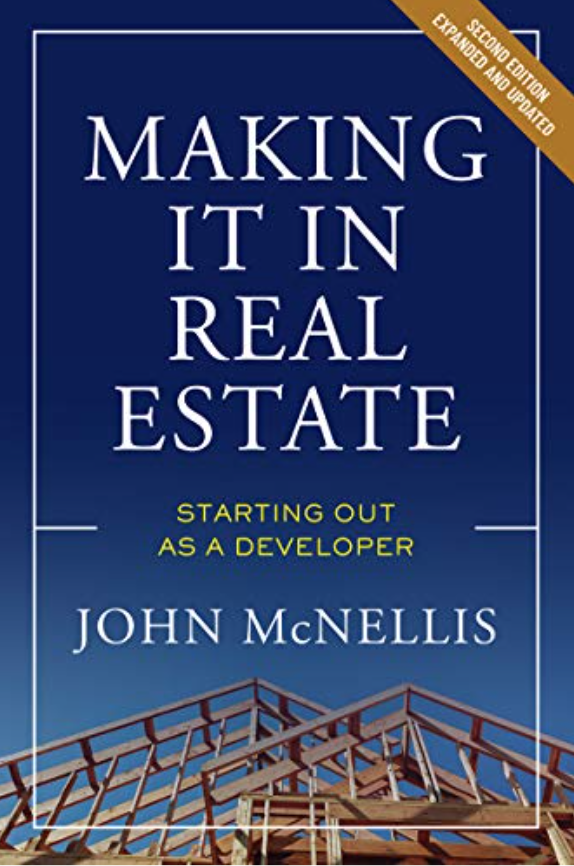Making it in Real Estate Part Three: Playing Small Ball
“I hit big or I miss big. I like to live as big as I can.” A winning formula for the greatest baseball player ever, but unless you’re determined to become real estate’s Babe Ruth, you might consider following in someone else’s spikes. Mortals make the Hall of Fame by hitting singles. The late Tony Gwynn was dearly remembered as a better person than a hitter and he was the greatest hitter of his generation. Tony hit singles. Derek Jeter will dash into the Hall hitting singles.
And so can you. But this is where the baseball metaphor strikes out—players make the Hall of Fame batting .300. You won’t. Unless you’re making money on 8 out of every 10 deals, you’ll enter a different hall, the one where you file Chapter 11.
Don Kuemmeler, a founding partner of Pacific Coast Capital Partners, is more precise. The Don says PCCP, a $6.5 billion real estate management firm, has to bat .850 on its equity deals and .990 on its debt placements to maintain its targeted profitability.
[pullquote_right]How should you choose real estate investments? The same way porcupines procreate—very carefully. [/pullquote_right]Hitting those numbers isn’t easy—$6.5 billion firms are few and far between for a reason—because sooner or later everyone loses money in real estate. How should you choose real estate investments? The same way porcupines procreate—very carefully.
Even then you will hit a rough patch (especially if you persist in thinking of a second home as an investment). If you bought anything in the last bubble, you lost big. But this is the point: If you didn’t have to sell, your losses were merely on paper. And if you can wait a bit longer, you may actually turn a profit. According to industry guru Hessam Nadji (he’s the chief strategy officer at Marcus & Millichap), prices for apartments and single tenant retail nationwide have already passed their bubble heights and multi-tenant retail and industrial are within 10 percent to 15 percent of theirs. In far less entertaining fashion than Hessam, the Federal Reserve reaches the same conclusion; last week it advised that real estate’s value is up 27 percent from its 2011 depths and off just 6 percent from its 2007 peak.
Wait it out.
If, however, you were forced to sell bubble-era acquisitions in 2009-11, you lost, somewhere between a lot and everything. What 3 factors force one to sell into a terrible market? Debt, debt and debt. The other “D’s”—death, divorce and disaster—are far easier to ignore than a foreclosure notice nailed to your door.
In baseball, the difference between a single and a home run is how hard you swing the bat; in real estate, it’s how much leverage you use.
In a rising market, leverage turns singles into home runs. Let’s say you bought a 5 million dollar property with a million in equity and a 4 million dollar loan and that two years later it’s worth 6 million. You would have achieved a 100 percent return on your million-dollar investment. Home run. If you had instead purchased the same property with no debt, your return would be 20 percent (a million dollar profit on a 5 million cash investment). Single.
Note we’re simply measuring the return on your equity investment to determine your level of success.
If, however, the property had lost 20 percent of its value, the leveraged buyer would be tapioca—his equity gone and his property too when the loan matures. On the other hand, the cash buyer has a 20 percent loss on paper, but nothing else changes. Assuming the drop in value is systemic (e.g., the Great Recession), the property’s cash flow remains the same: If you were making $300,000 a year when the property was worth $5 million, you’re still making $300,000 when it’s worth $4 million. Bob Hughes, one of the most original thinkers in our business, drawled in the depths of the recession, “John, my net worth’s gone down by half, but my cash flow’s the same.” And since net worth is meaningless (see my October 2011 column Working Without a Net Worth), since ultimately it’s all about cash flow, nothing changed for the talented Mr. Hughes. Nor will it for you if you are prudent with leverage.
It’s hard to hit a home run paying all-cash, but it’s also impossible to strike out and since even the best in our business lose money, you might seriously consider small ball. By the way, the Bambino himself agreed with this philosophy, “If I’d tried for them dinking singles, I could’ve batted around .800.” And so can you.
Finally, if you’re truly going out on your own, take this last bit of advice from the Babe to heart: “Never let the fear of striking out get in your way.”
Our next installment of “Making it in Real Estate” is Part Four: Specialize.


